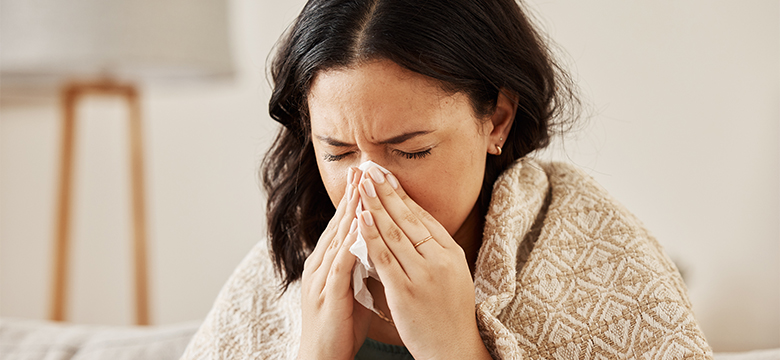
Every year, many people in the UK struggle with seasonal allergies and common colds. At first glance, hay fever and cold symptoms can appear quite similar — sneezing, runny nose, and congestion. However, understanding the differences between hay fever vs cold is crucial for effective treatment and relief. In this guide, we’ll explore the key differences, causes, symptoms, and treatments, and explain when you should seek advice from a Private GP in London.
Hay fever, also known as allergic rhinitis, is triggered by allergens such as pollen, dust mites, or pet dander. It is not caused by a virus and therefore cannot be “caught” from another person.
On the other hand, the common cold is caused by viruses like rhinoviruses and is contagious. Colds often appear during colder months but can occur at any time.
Knowing the distinction is essential because the treatment methods for hay fever vs cold are very different.
Here’s a closer look at the symptoms of hay fever vs cold:
|
Symptom |
Hay Fever |
Cold |
|
Sneezing |
Frequent & repetitive |
Occasional |
|
Runny Nose |
Clear, watery |
Thick, yellow/green mucus |
|
Itchy Eyes/Nose |
Common |
Rare |
|
Fever |
Never |
Sometimes |
|
Fatigue |
Mild |
Moderate to severe |
|
Duration |
Weeks/months (seasonal) |
Usually 7–10 days |
Key Takeaway: If your symptoms include itchy eyes, clear watery discharge, and occur every spring or summer, it’s likely hay fever. If you experience fatigue, fever, and thick mucus, you’re probably dealing with a cold.
Hay Fever Triggers:
Cold Causes:
Because hay fever is an allergic reaction, avoiding triggers or taking preventive medications is often necessary for relief. In contrast, colds generally resolve on their own, though symptoms can be eased with supportive care.
For severe or persistent cases, a Private GP in London can provide personalised advice, prescribe stronger medications, or recommend allergy testing.
Unlike hay fever, antihistamines do not relieve cold symptoms, highlighting the importance of correct diagnosis.
Sometimes, symptoms overlap, making it tricky to distinguish between hay fever vs cold. Here are some helpful pointers:
While many cases of hay fever and colds can be managed at home, certain situations require medical attention:
For personalised care, it’s best to schedule a consultation with a Private GP in London, who can diagnose the condition, prescribe appropriate treatment, and provide ongoing management advice.
Tip: Avoid confusing home remedies for one condition with the other — using allergy medications for a cold will not reduce viral symptoms, and cold remedies won’t relieve hay fever itchiness.
Distinguishing between hay fever vs cold is key to getting the correct treatment and fast relief. While home remedies can help, severe or persistent symptoms should always be evaluated by a healthcare professional.
If you’re unsure about your symptoms or need personalised treatment, consult a Private GP in London for expert advice and management. For safe and reliable care, visit Private Doctor London to schedule a consultation today.
By understanding the key differences between hay fever and cold, you can manage your symptoms effectively, protect your health, and enjoy the seasons without unnecessary discomfort.